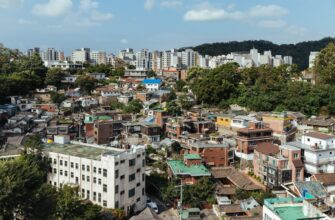- Introduction: Bitcoin Adoption in Bolivia
- Legal Status of Bitcoin in Bolivia
- Step-by-Step: How to Buy Bitcoin in Bolivia
- Step 1: Choose a Bitcoin Wallet
- Step 2: Select a Cryptocurrency Platform
- Step 3: Account Setup & Verification
- Step 4: Deposit Funds
- Step 5: Execute Your Bitcoin Purchase
- Step 6: Transfer to Your Private Wallet
- Payment Methods Compared
- Risks and Security Tips
- Frequently Asked Questions (FAQ)
- Is Bitcoin legal in Bolivia?
- Can I buy Bitcoin with Bolivianos (BOB)?
- What’s the fastest way to buy Bitcoin in Bolivia?
- Are there transaction limits?
- How do I avoid scams?
- Conclusion: Navigating Crypto Carefully
Introduction: Bitcoin Adoption in Bolivia
Despite Bolivia’s 2014 ban on cryptocurrencies, interest in Bitcoin continues to grow among tech-savvy Bolivians seeking financial alternatives. This guide walks you through secure methods to buy Bitcoin in Bolivia while navigating local regulations. Always prioritize compliance with Bolivian law when exploring crypto investments.
Legal Status of Bitcoin in Bolivia
Since 2014, Bolivia’s Financial System Supervision Authority (ASFI) has prohibited cryptocurrencies like Bitcoin. While enforcement focuses on financial institutions, individuals still access Bitcoin through peer-to-peer (P2P) platforms and international exchanges. Proceed with caution and consult legal experts regarding personal liability.
Step-by-Step: How to Buy Bitcoin in Bolivia
Step 1: Choose a Bitcoin Wallet
Select a secure digital wallet before purchasing:
- Hardware Wallets (Most Secure): Ledger or Trezor
- Mobile Wallets: Trust Wallet or Exodus
- Desktop Wallets: Electrum (for advanced users)
Step 2: Select a Cryptocurrency Platform
Recommended options for Bolivian users:
- P2P Exchanges: Binance P2P or LocalBitcoins (bypass local banking restrictions)
- International Exchanges: Bybit or OKX (no KYC for small amounts)
- Decentralized Exchanges (DEXs): Uniswap (requires existing crypto)
Step 3: Account Setup & Verification
- Use a VPN for platform access if blocked
- Provide email and phone number for basic verification
- Complete KYC with passport if required (not needed on P2P/DEXs)
Step 4: Deposit Funds
Funding methods available:
- Bank transfer to P2P sellers (in BOB)
- Cash deposits via authorized agents
- Crypto transfers from other wallets
Step 5: Execute Your Bitcoin Purchase
- On P2P: Select seller → Confirm BOB amount → Send payment → Receive BTC
- On exchanges: Navigate to BTC/BOB pair → Enter amount → Confirm trade
Step 6: Transfer to Your Private Wallet
Immediately move Bitcoin from exchange wallets to your personal wallet for enhanced security.
Payment Methods Compared
| Method | Speed | Fees | Risk Level |
|---|---|---|---|
| Bank Transfer (P2P) | 15-60 mins | 0.5-2% | Medium |
| Cash Deposit | Instant | 3-5% | High |
| Crypto Swap | 2-30 mins | 0.1-1% | Low |
Risks and Security Tips
- Regulatory Risk: ASFI may block exchange websites
- Scam Prevention: Use escrow services on P2P platforms
- Tax Implications: Consult accountants about capital gains
- Security: Enable 2FA and never share private keys
Frequently Asked Questions (FAQ)
Is Bitcoin legal in Bolivia?
No. Bolivia banned cryptocurrencies in 2014. However, individuals still trade at their own risk without institutional support.
Can I buy Bitcoin with Bolivianos (BOB)?
Yes. P2P platforms like Binance allow direct BOB payments to local sellers via bank transfers or cash deposits.
What’s the fastest way to buy Bitcoin in Bolivia?
Cash transactions through LocalBitcoins meetups or Binance P2P cash deposits typically complete within 30 minutes.
Are there transaction limits?
P2P platforms set limits per seller (usually $100-$500 daily). Exchanges may impose $10K monthly limits without KYC.
How do I avoid scams?
Always use platform escrow, check seller ratings, and never release payments before receiving BTC in your wallet.
Conclusion: Navigating Crypto Carefully
While buying Bitcoin in Bolivia involves navigating legal gray areas, P2P platforms provide viable options. Stay informed about regulatory changes, prioritize security, and never invest more than you can afford to lose. As global crypto adoption grows, Bolivia may revisit its stance – but until then, proceed with informed caution.








